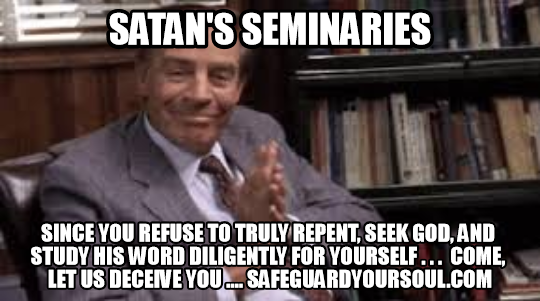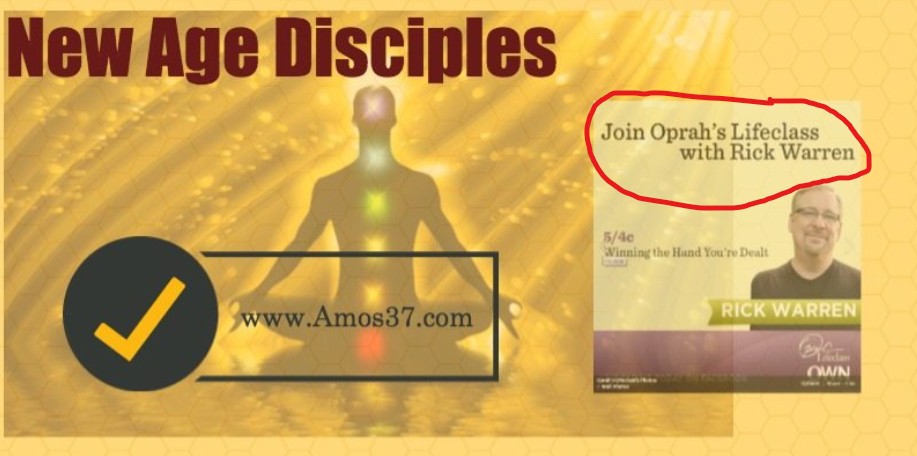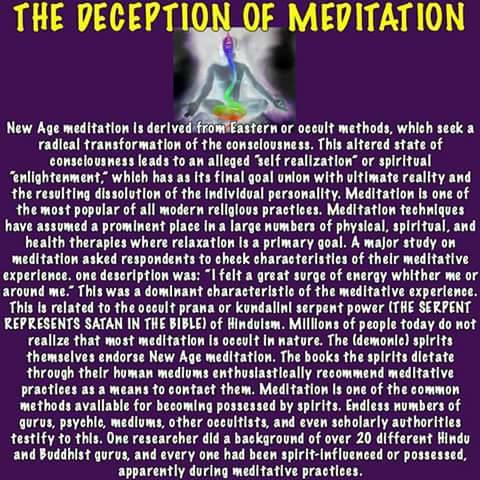The Use of Tracts
in Winning Lost Souls
R.A. Torrey
Comparatively few Christians realize the importance of tract work. I had been a Christian a good many years, and a minister of the Gospel several years, before it ever entered my head that tracts were of much value in Christian work. I had somehow grown up with the notion that tracts were all rubbish, and therefore I did not take the trouble to read them, and far less did I take the trouble to circulate them, but I found out that I was entirely wrong. Tract work has some great advantages over other forms of Christian work.
I. Importance and advantages.
1. Any person can do it. We cannot all preach; we cannot all conduct meetings; but we can all select useful tracts and then hand them out to others. Of course some of us can do it better than others. Even a blind man or a dumb man can do tract work. It is a line of work in which every man, woman and child can engage.
2. A tract always sticks to the point. I wish every worker did that, but how often we get to talking to some one and he is smart enough to get us off on to a side track.
3. A tract never loses its temper. Perhaps you sometimes do. I have known Christian workers, even workers of experience, who would sometimes get all stirred up, but you cannot stir up a tract. It always remains as calm as a June morning.
4. Oftentimes people who are too proud to be talked with, will read a tract when no one is looking. There is many a man who would repulse you if you tried to speak to him about his soul, who will read a tract if you leave it on his table, or in some other place where he comes upon it accidentally, and that tract may be used for his salvation.
5. A tract stays by one. You talk to a man and then he goes away, but the tract stays with him. Some years ago a man came into a mission in New York. One of the workers tried to talk with him, but he would not listen. As he was leaving, a card tract was placed in his hands which read, “If I should die to-night I would go to ______ Please fill out and sign.” He put it in his pocket, went to his steamer, for he was a sailor, and slipped it into the edge of his bunk. The steamer started for Liverpool. On his voyage he met with an accident, and was laid aside in his bunk. That card stared him in the face, day and night. Finally he said, “If I should die tonight I would go to hell, but I will not go there, I will go to heaven, I will take Christ right here and now.” He went to Liverpool, returned to New York, went to the mission, told his story, and had the card, which was still in his pocket, filled out and signed with his name. The conversation he had had in the mission left him, but the card stayed by him.
6. Tracts lead many to accept Christ. The author of one tract (“What is it to believe in the Lord Jesus Christ?”) received before his death upwards of sixteen hundred letters from people who had been led to Christ by reading it.
II. Purposes for which to use a tract.
1. For the conversion of the unsaved. A tract will often succeed in winning a man to Christ where a sermon or a personal conversation has failed. There are a great many people who, if you try to talk with them, will put you off; but if you put a tract in their hands and ask God to bless it, after they go away and are alone they will read the tract and God will carry it home to their hearts by the power of the Holy Ghost. One of our students wrote me in great joy of how he had at last succeeded in winning a whole family for Christ. He had been working for that family for a long time but could not touch them. One day he left a tract with them, and God used that tract for the conversion of four or five members of the family. Another student held a cottage meeting at a home, and by mistake left his Bible there. There was a tract in the Bible. When he had gone, the woman of the house saw the Bible, picked it up, opened it, saw the tract and read it. The Spirit of God carried it home to her heart, and when he went back after the Bible she told him she wanted to find the Lord Jesus Christ. The tract had done what he could not do in personal work. I once received a letter from a man saying, “There is a man in this place whom I tried for a long time to reach but could not. One day I handed him a tract, and I think it was to the salvation of his whole family.”
2. To lead Christians into a deeper and more earnest Christian life. It is a great mistake to limit the use of tracts to winning the unsaved to Christ. A little tract on the Second Coming of Christ, once sent me in a letter, made a change in my whole life. I do not think the tract was altogether correct doctrinally, but it had in it an important truth, and it did for me just the work that needed to be done.
and more earnest Christian life. It is a great mistake to limit the use of tracts to winning the unsaved to Christ. A little tract on the Second Coming of Christ, once sent me in a letter, made a change in my whole life. I do not think the tract was altogether correct doctrinally, but it had in it an important truth, and it did for me just the work that needed to be done.
There is a special class of people with whom this form of ministry is particularly helpful, those who live where they do not enjoy spiritual advantages. You may know some one who is leading a very unsatisfactory life, and you long to have that person know what the Christian life really means. His pastor may not be a spiritual man, he may not know the deep things of God. It is the simplest thing in the world to slip into a letter a tract that will lead him into an entirely new Christian life.
3. To correct error. This is a very necessary form of work in the day in which we live. The air is full of error. In our personal work we have not always time to lead a man out of his error, but oftentimes we can give him a tract that can do the work better than we can. If you tried to lead him out of his error by personal work, you might get into a discussion, but the tract cannot. The one in error cannot talk back to the tract. For example, take people that are in error on the question of seventh day observance. It might take some time to lead such a one out of the darkness into the light, but a tract on that subject can be secured that has been used of God to lead many out of the bondage of legalism into the glorious liberty of the Gospel of Christ.
4. To set Christians to work. Our churches are full of members who are doing nothing. A well-chosen tract may set such to work. I know of a young man who was working in a factory in Massachusetts. He was a plain, uneducated sort of fellow, but a little tract on personal work was placed in his hands. He read it and re-read it, and said, “I am not doing what I should for Christ.” He went to work among his companions in the factory, inviting them to the church, and to hear his pastor preach. Not satisfied with this, he went to doing personal work. This was not sufficient, so he went to work holding meetings himself. Finally he brought a convention to his city. Just that one plain factory man was the means of getting a great convention and blessing to that place, and all from reading that little tract. He was also instrumental in organizing a society which was greatly blessed of God. It would be possible to fill this country with literature on Christian work that would stir up the dead and sleeping professors of religion throughout the land, and send them out to work for the Lord Jesus Christ.
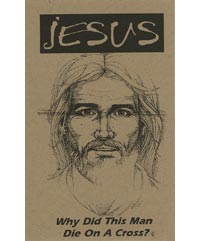
III. Who should use tracts.
1. Ministers of the Gospel should use them. Many ministers do make constant use of them in their pastoral work, leaving well chosen tracts where they make their pastoral calls, handing out tracts along the line of the sermons that they preach. It is said of Rev. Edward Judson of New York, that he seldom makes a call without having in his pocket a selection of tracts adapted to almost every member of the family, and especially to the children. “At the close of the Sunday evening preaching service, he has often put some good brother in the chair, and while the meeting proceeds he goes down into the audience and gives to each person a choice leaflet, at the same time taking the opportunity to say a timely word. In this way he comes into personal touch with the whole audience, gives each stranger a cordial welcome, and leaves in his hand some message from God. At least once a year he selects some one tract that has in it the very core of the Gospel. On this he prints the notices of the services, and selecting his church as a center, he has this tract put in the hands of every person living within half a mile in each direction, regardless of creed or condition. He sometimes uses 10,000 tracts at one distribution, and finds it very fruitful in results.”
2. Sunday School teachers. Every Sunday School teacher should be on the lookout for tracts to give to his scholars. In this way he can do much to supplement his hour’s work on the Lord’s Day.
3. Traveling men. Traveling men have a rare opportunity for doing tract work. They are constantly coming in contact with different men, and finding out their needs. A Christian “drummer” with a well-assorted selection of tracts can accomplish immeasurable good.
4. Business men. Business men can use tracts to good advantage with the very men with whom they have business engagements. They can also do excellent work with their own employees. Many a business man slips well chosen tracts into many of the letters which he writes, and thus accomplishes an effective ministry for his Master.
5. School teachers. It is very difficult for school teachers in some cities and towns to talk very much with their pupils in school. Oftentimes the rules of the school board prevent it entirely, but a wise teacher can learn all about her scholars and their home surroundings, and can give them tracts just adapted to their needs.
6. Housekeepers. Every Christian housekeeper should have a collection of well assorted tracts. She can hand these out to the servant girls, the grocery men, the market men, the butcher, to the tramps that come to the door. They can be left upon the table in the parlor and in bedrooms. Only eternity will disclose the good that is accomplished in these ways.
IV. How to use tracts.
1. To begin a conversation. One of the difficulties in Christian work is to begin. You see a person with whom you wish to talk about the Lord Jesus Christ. The great difficulty is in starting. It is easy enough to talk after you have started, but how are you going to start a conversation naturally and easily? One of the simplest and easiest ways is by slipping a tract into the person’s hand. After the tract has been read, a conversation naturally follows. I was once riding in a crowded car. I asked God for an opportunity to lead some one to Christ. I was watching for the opportunity for which I had asked, when two young ladies entered. I thought I knew one of them as the daughter of a minister. She went through the car looking for a seat, and then came back. As she came back and sat down in the seat in front of me, she bowed, and of course I knew I was right as to who she was. I took out a little bundle of tracts, and selecting one that seemed best adapted to her case, I handed it to her, having first asked God to bless it. She at once began to read and I began to pray. When she had read the tract, I asked her what she thought about it. She almost burst into tears right there in the car, and in a very few moments that minister’s daughter was rejoicing in the Lord Jesus Christ as her personal Saviour. As she afterwards passed out of the car, she said, “I want to thank you for what you have done for me in leading me to Christ.”
2. Use a tract to close a conversation. As a rule when you have finished talking with some one, you should not leave him without something definite to take home to read. If the person has accepted Christ, put some tract in his hands that will show him how to succeed in the Christian life. If the person has not accepted Christ, some other tract that is especially adapted to his need should be left with him.
3. Use tracts where a conversation is impossible. For example, one night at the close of a tent meeting in Chicago, as I went down one of the aisles a man beckoned to me, and intimated that his wife was interested. She was in tears, and I tried to talk with her, but she stammered out in a broken way, “We don’t talk English.” She had not understood a word of the sermon, I suppose, but God had carried something home to her heart. They were Norwegians, and I could not find a Norwegian in the whole tent to act as interpreter, but I could put a Norwegian tract in her hand, and that could do the work. Time and time again I have met with men deeply interested about their soul’s salvation, but with whom I could not deal because I did not talk the language that they understood.
One day as I came from dinner, I found a Swede waiting for me, and he said he had a man outside with whom he wished me to talk. I went outside and found an uncouth looking specimen, a Norwegian. The Swede had found him drunk in an alley and dragged him down to the Institute to talk with me. He was still full of whisky, and spit tobacco juice over me as I tried to talk with him. I found he could not talk English, and I talked English to the Swede, and the Swede talked Swedish to the Norwegian, and the Norwegian got a little bit of it. I made it as clear as I could to our Swede interpreter, and he in his turn made it as clear as he could to the Norwegian. Then I put a Norwegian tract in his hands, and that could talk to him so that he understood perfectly.
Oftentimes a conversation is impossible because of the place where you meet people. For example, you may be on the street cars and wish to speak to a man, but in many instances it would not be wise if it were possible, but you can take the man’s measure and then give him a tract that will fit him. You may be able to say just a few words to him and then put the tract in his hands and ask God to bless it.
4. Use tracts to send to people at a distance. It does not cost a tract much to travel. You can send them to the ends of the earth for a few cents. Especially use them to send to people who live in out of the way places where there is no preaching. There are thousands of people living in different sections of this country where they do not hear preaching from one year’s end to another. It would be impossible to send an evangelical preacher to them, but you can send a tract and it will do the preaching for you.
V. Suggestions as to the use of tracts.
1. Always read the tracts yourself before giving them to others. This is very necessary. Bad tracts abound to-day, tracts that contain absolutely pernicious doctrine. They are being circulated free by the million, and one needs to be on his guard, lest he be doing harm rather than good in distributing tracts. Of course we cannot read all the tracts in foreign languages, but we can have them interpreted to us, and it is wise to do so. Besides positively bad tracts, there are many tracts that are worthless.
2. Suit your tract to the person to whom you give it. What is good for one person may not be good for another.
3. Carry a selection of tracts with you. I do not say a collection, but a selection. Tracts are countless in number, and a large share of them are worthless. Select the best, and arrange them for the different classes of people with whom you come in contact.
4. Seek the guidance of God. This is of the very highest importance. If there is any place where we need wisdom from above, it is in the selection of tracts, and in their distribution after their selection.
5. Seek God’s blessing upon the tract after you have given it out. Do not merely give out the tract and there let the matter rest, but whenever you give out a tract ask God to bless it.
6. Oftentimes give a man a tract with words and sentences underscored. Men are curious, and they will take particular notice of the underscoring. It is oftentimes a good thing to have a tract put up in your office. Men who come in will read it. I know a man who had a few words put upon his paper weight. A great many who came into his office saw it, and it made a deep impression upon them.
7. Never be ashamed of distributing tracts. Many people hand out tracts to others as if they were ashamed of what they were doing. People are not likely to read tracts if you hand them to them as if you were ashamed to do it; but if you act as though you were conferring a favor upon them, and giving them something worth reading, they will read your tract. It is often well to say to a person, “Here is a little leaflet out of which I have gotten a good deal of good. I would like to have you read it.”
PASS THIS ON TO ANOTHER
Check out soul winning Gospel tracts here | The Persistence of One Child | Evangelism | Support | STORE
If you truly desire to know more about how to really know the LORD, go here okay: Born Again: What is It?
Sign up for free email devotional HERE… The Moments with My Master email is sent out 2-3 times weekly for the edification of the body of Christ.
Abiding
“Be thou in the Fear of the LORD all the Day Long” [podcast]

“Be thou in the fear of the LORD all the day long.” Proverbs 23:17
One sources notes that ….
“Fearing God means having a profound, reverent awe of His holiness, power, and majesty, recognizing His supremacy and our dependence on Him, which leads to wisdom, humility, and obedience, rather than terror. It’s a posture of respect that involves taking God seriously, hating evil, living with integrity, and prioritizing His will in all aspects of life, all while balancing this with the knowledge of His love and mercy as a Father.”
We are to let God be our “dread.”
“Sanctify the LORD of hosts himself; and let him be your fear, and let him be your dread.” Isaiah 8:13
We are to tremble at His Word.
“For all those things hath mine hand made, and all those things have been, saith the LORD: but to this man will I look, even to him that is poor and of a contrite spirit, and trembleth at my word.” Isaiah 66:2
“Hear the word of the LORD, ye that tremble at his word; Your brethren that hated you, that cast you out for my name’s sake, said, Let the LORD be glorified: but he shall appear to your joy, and they shall be ashamed.” Isaiah 66:5
There are many benefits to fearing God and one of them is a “clean” heart and life.
“The fear of the LORD is clean, enduring for ever: the judgments of the LORD are true and righteous altogether.” Psalms 19:9
A Great Prayer to Pray Daily
“Teach me thy way, O LORD; I will walk in thy truth: unite my heart to fear thy name.” Psalms 86:11
Fearing God brings “strong confidence”, blessed children, and departing from the snares of death ….
“In the fear of the LORD is strong confidence: and his children shall have a place of refuge. 27 The fear of the LORD is a fountain of life, to depart from the snares of death.” Proverbs 14:26-27
Anyone who is presently living in sin instead of abiding in the Savior, simply does not fear God.
Those who fear the LORD are crucified with Christ and thereby being raised up and overcoming sin.
“For he that is dead is freed from sin.” Romans 6:7
Another Great Prayer Daily
“That he would grant you, according to the riches of his glory, to be strengthened with might by his Spirit in the inner man;” Ephesians 3:16
Having a heart so peaceful there is no fear of anything evil.
“But whoso hearkeneth unto me shall dwell safely, and shall be quiet from fear of evil.” Proverbs 1:33
“Let thine eyes look right on, and let thine eyelids look straight before thee. 26 Ponder the path of thy feet, and let all thy ways be established. 27 Turn not to the right hand nor to the left: remove thy foot from evil.” Proverbs 4:25-27
“For the LORD shall be thy confidence, and shall keep thy foot from being taken.” Proverbs 3:26
“But I keep under my body, and bring it into subjection: lest that by any means, when I have preached to others, I myself should be a castaway.” 1 Corinthians 9:27
“Wherefore let him that thinketh he standeth take heed lest he fall.” 1 Corinthians 10:12
The earliest followers of Jesus “were edified; and walking in the fear of the Lord, and in the comfort of the Holy Ghost, were multiplied.”
“Then had the churches rest throughout all Judaea and Galilee and Samaria, and were edified; and walking in the fear of the Lord, and in the comfort of the Holy Ghost, were multiplied.” Acts 9:31
The fear of the LORD brings deliverance – Psalms 34:7-10
“The angel of the LORD encampeth round about them that fear him, and delivereth them. 8 O taste and see that the LORD is good: blessed is the man that trusteth in him. 9 O fear the LORD, ye his saints: for there is no want to them that fear him. 10 The young lions do lack, and suffer hunger: but they that seek the LORD shall not want any good thing.” Psalms 34:7-10
The beginning of wisdom is truly fearing God:
“The fear of the LORD is the beginning of wisdom: and the knowledge of the holy is understanding.” Proverbs 9:10
The fruit of fearing the LORD:
“The fear of the LORD is to hate evil: pride, and arrogancy, and the evil way, and the froward mouth, do I hate.” Proverbs 8:13
Prayer: Unite my heart to fear Thy holy name LORD. Teach me Your wisdom. In Jesus’ name, amen LORD.
Support | STORE | Podcasts | Jail/Prison Ministry | Mexico Mission here | All Ministry Updates | Because You Care Page | Bible/Word of God | The Greatest of these is Charity | Be Ready in the Morning [podcast] | The Sure Mercies of David [podcast] | That Repentance and Remission of Sins should be Preached [podcast] | At His Feet | Prepared to be Used of God | Grace and Truth Bible School [modules] | 7 Study Guides to a Greater Foundation in Christ | Knowing God | The Cross Life | Christology = the Study of Christ
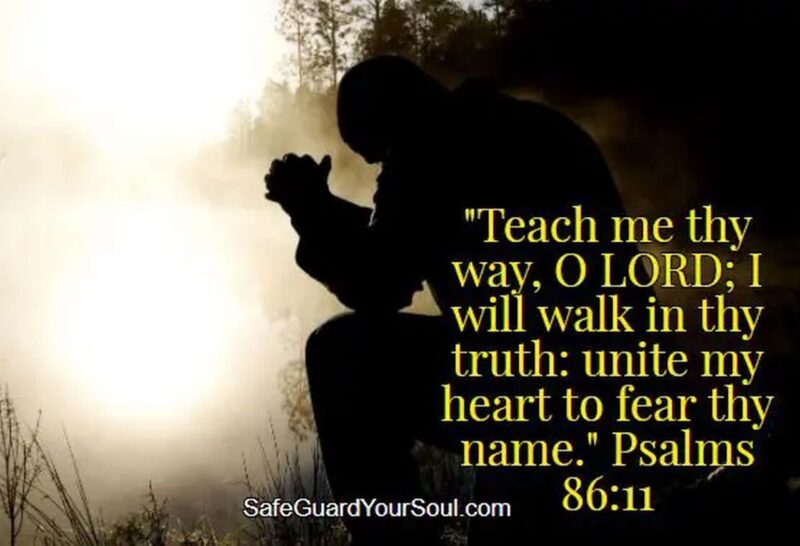


Apostasy
The Sensual Seduction and Solicitation of the Modern Church!

Spiritual Seduction is a Reality!
“How that they told you there should be mockers in the last time, who should walk after their own ungodly LUSTS. 19 These be they who separate themselves, SENSUAL, having not the Spirit.” Jude 18-19
Of this passage, one disciple notes:
“The dictionary defines sensuality this way: sen•su•al (sen shu – al) adj.
1. Relating to or affecting any of the senses or a sense organ; sensory.
2. a. Of, relating to, given to, or providing gratification of the physical and especially the sexual appetites.
b. Suggesting sexuality; voluptuous.
c. Physical rather than spiritual or intellectual.
d. Lacking in moral or spiritual interests; worldly.
“The Holy Spirit here warns us concerning the Last Times when people would be Sensual not having the Spirit. These are people who would enter the churches not simply people outside the churches; else we would not need to be warned against them. It is commonly felt that “Sensual” always is synonymous with sexuality; however the context here is with regards to the physical ‘senses’—’Feelings’ and ‘sensations’. We have five senses; Sight, Sound, Touch, Taste and Scent. We are told that we ‘walk by faith’, as opposed to walking ‘by sight’. -2 Corinthians 5:7 ‘For we walk by faith, not by sight’. This is simply a reminder that our lives must not be governed by our feelings, our senses. Back in the sixties one of the philosophies of the world was always, ‘If it feels good, it IS good’. Another question that is often asked is, ‘Is this so wrong if it feels so right?'”
“There is a way which seemeth right unto a man, but the end thereof are the ways of death.” Proverbs 14:12
Most of the social media messages tell us, continually remind us that God loves us but nearly none of them inform us that the God who loves us, sent His Son to die on a cross for us, and requires and commands us to be “crucified with Christ.” (Galatians 2:20; Romans 8:29; Colossians 3:3) Beware of the half-truth false gospel of today! We must walk in the original Gospel – all of it – if we are to escape and not be “Led away with the error of the wicked.” (2 Peter 3:17)
False prophets will speak about seeking the supposed presence of God yet never preach on the cross, personal holiness, or obedience. Beware.
The only way we can prevent being deceived is by astute study and belief of God’s Word whereby we are able to rightly divide His Word of truth (2 Timothy 2:15).
One saint writes: “Throughout the whole world error and truth travel the same highways, work in the same fields and factories, attend the same churches, fly in the same planes and shop in the same stores. So skilled is error at imitating truth that the two are constantly being mistaken for each other. It takes a sharp eye these days to know which brother is Cain and which is Abel!”
Those who do not submit to God in their daily personal life, calling upon the LORD to circumcise and purify their hearts, will be caught up in and snared by sensuality. They will live by the senses, the flesh, and not the Spirit and be sent by God Himself a “strong delusion” so that they “believe a lie” and are ultimately “damned.” (2 Thessalonians 2:9-12)
Some seek the rush of a sensual feeling instead of the reality of the risen Savior – through the cross life!
“I know thy works, that thou hast a name that thou livest, and art dead.” Revelation 3:1
HAVE you noticed how these new lightweight “churches” brag about their “Top 10 Core Values”? What a joke! In other words they pick out 10 socially acceptable things most people will like and that’s their top 10. And they do this instead of simply announcing that they endeavor to adhere to the whole of the Bible. KJB. Lame.
The primary way God leads His NEW Testament church is by the Holy Scriptures and not self-appointed false prophets and false apostles (2 Timothy 3:16-17; Psalms 119:105; 2 Peter 1:19-21, etc.).
Those who pretend to be today’s prophets aren’t grounded in the written Word! RUN!
Scripture often warns us of those who would seduce us away from Christ – just as an adulterous woman seeks to seduce a husband away from his wife!
“For false Christs and false prophets shall rise, and shall shew signs and wonders, to seduce, if it were possible, even the elect.” Mark 13:22
“These things have I written unto you concerning them that seduce you.” 1 John 2:26
“Not Withstanding I have a few things against thee, because thou sufferest that woman Jezebel, which calleth herself a prophetess, to teach and to seduce my servants to commit fornication, and to eat things sacrificed unto idols.” Revelation 2:20
“And this I say (here’s the reason I write you!), lest any man should beguile you with enticing words … As ye have therefore received Christ Jesus the Lord, so walk ye in him: 7 Rooted and built up in him, and stablished in the faith, as ye have been taught, abounding therein with thanksgiving. 8 Beware lest any man spoil you through philosophy and vain deceit, after the tradition of men, after the rudiments of the world, and not after Christ. 9 For in him dwelleth all the fulness of the Godhead bodily. 10 And ye are complete in him, which is the head of all principality and power.” Colossians 2:4, 8-10
“Church” attendance was never ordained by God to displace, to replace the personal study of His Word. Church membership endears the people, the prey, to the organization and it’s leaders and members and not to the LORD Himself. This has displaced the individual priesthood and fellowship God ordained for each and every individual believer. Lots of people replace personally diligently seeking the LORD with going to “church.” They either merely dabble with or don’t even personally study God’s Word for themselves and yet are members in good standing at these local entertainment centers many call “church.” The pastors have sold them on this lifestyle by promoting and emphasizing church membership and not discipleship.
Seminaries are wolf factories. The protestant seminaries were infiltrated by the vatican jesuits decades ago and are now marketing schools producing greedy wolves who set up church busine$$ to market the gospel – which is the meaning of taking the name of the LORD in vain! (Exodus 20:7). Satan’s Seminaries Exposed!
“Thou shalt not take the name of the LORD thy God in vain; for the LORD will not hold him guiltless that taketh his name in vain.” Exodus 20:7
To take the name of the LORD in vain is to use His name for any other purpose except true, honest worship of Him! Those who use the name of Jesus to make dishonest gain by exploiting people for their own self-serving purposes, are not guiltless before a holy God!
Many Seek the Presence and not the Person, the Face of Jesus Christ!
If you name the name of Christ, this writer, this disciple would encourage you to honestly search out this whole “seeking the presence” cult. Contemplative prayer and spiritual formation are a cheap counterfeit for a real walk with God. They substitute a real walk with Jesus wherein He commands us to seek and obey HIM, not merely His presence. When we do seek HIM and obey Him, He promises to manifest Himself to those who obey His Word (John 14:21-23).
Perhaps those who seek the presence of God and not the face of God, are simply looking for some kind of feeling. They have not truly repented and are self-willed and living out of a self-serving agenda.
God plainly told us that he will only give His presence to those who know, seek, and obey Him – and not those who merely seek His presence (John 14:21- 23).
Those who seek His HAND instead of His FACE are completely self-serving, cross-less idolaters!
“Seek the LORD and his strength, seek his FACE continually.” 1 Chronicles 16:11
WE seek the PERSON of Christ and not merely the PRESENCE of Him. Beware of this deception saints. When we seek the FACE of the LORD, He will fill us with His Spirit and make His abode in and with us. Our part is to worship and obey Him and not to merely seek His presence. Many who are not seeking to know the LORD seek a feeling instead of seeking the face of the LORD! Beware of this idolatrous spiritual adultery. These same people are not studying and grounded in the Word or the cross of Christ.
Let’s look at who Jesus says truly loves Him:
“He that hath my commandments, and keepeth them, he it is that loveth me: and he that loveth me shall be loved of my Father, and I will love him, and will manifest myself to him. … 23 Jesus answered and said unto him, If a man love me, he will keep my words: and my Father will love him, and we will come unto him, and make our abode with him.” John 14:21, 23
In this passage above, Jesus teaches us that His presence, He and His Father, abide in the lives of those who are His (born again) and presently obeying Him.
Those who love Jesus seek His Word and obey Him. These true disciples, God manifests Himself to. These are those He chooses to make His abode with and not those who simply seek to exploit the LORD for a feeling they call His presence. Beware!
Many today seek a feeling, a sensation and not the Savior! They’ve allowed the false leaders of today to mislead them.
“Having a form of godliness, but denying the power thereof: from such turn away … Ever learning, and never able to come to the knowledge of the truth.” 2 Timothy 3:5,7
Those not submitted to the authority, the power of God which is Christ, have only a mere “form of godliness.” As was specifically foretold, today we see the fulfillment of Paul’s warning where we have so many with a mere “form of godliness.” In their daily lives they deny, reject “the power” or the authority of Jesus to reign. When Jesus reigns in a life, His cross is central to that person’s life. They are grounded in the cross – the crucified life – without exception.
Yet today we see some who never grow after being saved because false ministries have intercepted them from the LORD. Those false prophet ministries emphasize any and everything except Jesus Christ!
The vast majority of today’s pastors are sensually soliciting their prey to worship at the altar of self and not soundly grounding their audience in the cross and sound doctrine which is God’s written Word!
So many run to pack themselves in with the herd, to get turned on in what is supposed to be praise and worship. Some of it is a hollow sound and mere lip service.
“This people draweth nigh unto me with their mouth, and honoureth me with their lips; but their heart is far from me.” Matthew 15:8
The hoards consist of the same souls who do not daily, diligently seek the LORD in His Word and a set apart life of prayer (Matthew 6:6; 2 Timothy 2:15). They do not live a crucified life! (Luke 9:23-24; Galatians 2:20, 24, etc.) They are “Ever learning, and never able to come to the knowledge of the truth” because they are not being grounded in the Word of God.
The powder puff pansies use fake news “bibles” instead of the KING JAMES BIBLE.
Any leader not getting you into God’s Word for yourself, is absolutely a wolf! Run!
“Study to shew thyself approved unto God, a workman that needeth not to be ashamed, rightly dividing the word of truth.” 2 Timothy 2:15
The Witchcraft of the Modern Church!
There is no instance in the 27 books of the New Testament canon where God’s people gathered to be entertained and enamored in what the modern church falsely claims to be praise and worship.
Those false ministries who stage these events are appealing to your natural senses, your emotions. They are on a marketing journey – to sell their prey into a community and not to root them in Christ!
Proof? Name 5 people you know who attend such false churches who can quote just 5 Bible verses they’ve memorized. Case closed!
Seeking and Knowing the LORD Himself!
“That I may know him, and the power of his resurrection, and the fellowship of his sufferings, being made conformable unto his death;” Philippians 3:10
Jesus told us that the chief purpose that He came is that we might know Him and the Father. Such a cardinal, central Gospel truth is never heard in modern apostate churches today!
“And this is life eternal (the whole divine reason for it), that they might know thee the only true God, and Jesus Christ, whom thou hast sent.” John 17:3
The cross reveals your sin, and God’s love, not how wonderful you are! Repent!
Beware of this “knowing the Tangible Presence” idea. Spiritual formation and contemplative prayer is heresy! These heretical systems are rooted in the occult and perpetrated by “many false prophets” which Jesus specifically warns us “shall deceive many” (Matthew 24:11). Christ’s true disciples today live BY FAITH not feelings (2 Corinthians 5:7). True followers of Jesus live by the Word of God and not by their senses, their feelings (Psalms 119:105; 2 Timothy 3:16-17). Yet, many today are being led to conjure up a feeling, not realizing they are summoning up evil spirits that pose as the Holy Spirit of God – another Jesus, another gospel, another spirit (2 Corinthians 11:2-4, 11-15). Those who seek an experience instead of seeking the face of the LORD, will be misled by evil spirits and false prophets (1 Chronicles 16:11). Many today are sensual and not truly spiritual in the biblical sense. There is no cross at the center of their lives (Colossians 3:3). Their daily life is not rooted in Christ – the cross! They have been led by the self-serving wolves of today’s modern church to get addicted to a feeling instead of growing in grace and obeying the LORD and Savior Himself. Self-idolatry. They love to go do what some falsely call “praise and worship” to get that feeling. Praise and worship are biblical and yet, not what many have made it out to be. There are many houses of worship if you will, which do not have Christ, the cross, at the center and therefore are not worshiping the LORD by teaching the pure, sound doctrine of the Word of God – the King James Bible. These ravenous wolves know how the church busine$$ works and so they front with a good band, good music, using young, gifted people as their pawns as they stage their deceptive exploitation, hiding behind that good music! Beware saints.
Wolves entertain goats and market their church busine$$ to grow, to gain nickels, noses, and numbers. True under-shepherds ground God’s people in the daily cross, in the fear of God, and in the sound doctrine which is the written Word of God (2 Timothy 2:15; 3:16-17; 4:2-4; 2 Peter 1:19-21, etc.).
This is a big part of the end time deception we were often warned of….
“Now the Spirit speaketh expressly, that in the latter times some shall depart from the faith, giving heed to seducing spirits, and doctrines of devils; 2 Speaking lies in hypocrisy; having their conscience seared with a hot iron;” 1 Timothy 4:1-2
Have you ever been part of this type “church”? I sure have. Think about it. If you’re like myself, you enjoyed the praise and worship (to some degree) and yet, were left empty due to the lame “word” and lack of biblical teaching. Can anyone relate?
In any given town in America, one can search high and low, near and far, and never find even one pastor who is true to God. Is this not a fulfillment of prophecy?
“Behold, the days come, saith the Lord GOD, that I will send a famine in the land, not a famine of bread, nor a thirst for water, but of hearing the words of the LORD:” Amos 8:11
“Preach the word; be instant in season, out of season; reprove, rebuke, exhort with all longsuffering and doctrine. 3 For the time will come when they will not endure sound doctrine; but after their own lusts shall they heap to themselves teachers, having itching ears; 4 And they shall turn away their ears from the truth, and shall be turned unto fables.” 2 Timothy 4:2-4
If you still believe that most pastors today are true, stay deeply in God’s Word daily and your discernment will change. You will begin to realize that over 90% of today’s pastors are “accursed” wolves and we know this because they do not preach the original Gospel that Christ and His holy apostles preached and gave us (Jude 3).
Modern church false gospel …. No repentance, no sin, No judgment, no holiness, no cross, No warnings to beware of false prophets and heresies, no return of Christ for a spotless – sinless – bride, no Christology (study of Christ!) …
Those who preach any other gospel other than the original and complete Gospel of Jesus Christ, are “accursed.”
“I marvel that ye are so soon removed from him that called you into the grace of Christ unto another gospel: 7 Which is not another; but there be some that trouble you, and would pervert the gospel of Christ. 8 But though we, or an angel from heaven, preach any other gospel unto you than that which we have preached unto you, let him be accursed. 9 As we said before, so say I now again, If any man preach any other gospel unto you than that ye have received, let him be accursed.” Galatians 1:6-9
Then Paul reveals why false leaders do not preach the original, the real and whole Gospel of Christ – because they love self and therefore fear and cater to mere men and not Jesus Christ!
“For do I now persuade men, or God? or do I seek to please men? for if I yet pleased men, I should not be the servant of Christ.” Galatians 1:10
Support | STORE | Podcasts | Jail/Prison Ministry | Mexico Mission here | All Ministry Updates | More on Assurance here | Because You Care Page | The Greatest of these is Charity | Be Ready in the Morning [podcast] | The Sure Mercies of David [podcast] | That Repentance and Remission of Sins should be Preached [podcast] | At His Feet | Knowing God | The Cross Life | 100’s of Christ-centered Scripture-rich Podcasts | Christology = the Study of Christ


Abiding
WHY were 24,000 of God’s People Killed at Peor? [podcast]

“Baal was most often portrayed as a strong warrior and was considered the god of storms and fertility. He was said to rule from his palace atop Mount Zaphon, the highest peak in Syria. Baal is referenced several times in the Bible’s Old Testament, where he is depicted as the main rival of the god of the Israelites.”
We must understand that God is severe in His judgment of rebels of which there are “many” who claim they are saved. Eternal damnation awaits all rebels (Matthew 7:13-23, etc.).
“Behold therefore the goodness and severity of God: on them which fell, severity; but toward thee, goodness, if thou continue in his goodness: otherwise thou also shalt be cut off.” Romans 11:22
DIVINE JUDGMENT, the “severity of God,” IS NOT GOING AWAY JUST BECAUSE YOU OR SOME FAKE PREACHER IGNORES IT!
Christians avoid doing as did the Israelites when they worshipped baal by worshipping the LORD, the Father and Jesus Christ “in spirit and in truth.” (John 4:23-24; 1 Corinthians 8:6; 1 John 1:3) This begins with fresh and complete repentance, confession of all sin, and denouncing of all dependence, idolatry, all pagan practices like yoga and mantra chanting, etc., and by understanding that truly worshiping the LORD, the one true God, is based on sincere loyalty to Him and not to get things from Him like success or possession in this fleeting world. The heart of the disciple of Jesus must be circumcised perpetually and this is happening as we examine our hearts for idols, the daily crucified life, living a life of prayer, setting boundaries against temptations, and being wholly accountable to the LORD, while avoiding syncretism (mixing pagan rituals with Christian practice) and prioritizing God’s Word.
Deuteronomy 4:1-10
 24,000 of God’s own people, men, departed from obeying the instruction, the standard, the Word of God and were destroyed. They partook in the soul damning sin of fornication.
24,000 of God’s own people, men, departed from obeying the instruction, the standard, the Word of God and were destroyed. They partook in the soul damning sin of fornication.
“Now therefore hearken, O Israel, unto the statutes and unto the judgments, which I teach you, for to do them, that ye may live, and go in and possess the land which the LORD God of your fathers giveth you. 2 Ye shall not add unto the word which I command you, neither shall ye diminish ought from it, that ye may keep the commandments of the LORD your God which I command you. 3 Your eyes have seen what the LORD did because of Baalpeor: for all the men that followed Baalpeor, the LORD thy God hath destroyed them from among you. 4 But ye that did cleave unto the LORD your God are alive every one of you this day. 5 Behold, I have taught you statutes and judgments, even as the LORD my God commanded me, that ye should do so in the land whither ye go to possess it. 6 Keep therefore and do them; for this is your wisdom and your understanding in the sight of the nations, which shall hear all these statutes, and say, Surely this great nation is a wise and understanding people. 7 For what nation is there so great, who hath God so nigh unto them, as the LORD our God is in all things that we call upon him for? 8 And what nation is there so great, that hath statutes and judgments so righteous as all this law, which I set before you this day? 9 Only take heed to thyself, and keep thy soul diligently, lest thou forget the things which thine eyes have seen, and lest they depart from thy heart all the days of thy life: but teach them thy sons, and thy sons’ sons; 10 Specially the day that thou stoodest before the LORD thy God in Horeb, when the LORD said unto me, Gather me the people together, and I will make them hear my words, that they may learn to fear me all the days that they shall live upon the earth, and that they may teach their children.” Deuteronomy 4:1-10
Departing from the pure Word of God always leads to sinful living as was the case with 24,000 of God’s people’s worship at Baal Peor.
“And Jesus answered him, saying, It is written, That man shall not live by bread alone, but by every word of God.” Luke 4:4
In Deuteronomy 4, Moses warns God’s people not to change or depart from the LORD’s Word and brings up the example, reminds the people of God’s judgment upon 24,000 of His own people for doing so (Numbers 25).
Of the worship of Baal-Peor, one writer notes:
“Yet what was this worship of Baal-Peor and why did it draw such wrath from God? Baal-Peor is a Moabite god who was worshipped with obscene rituals. The name means ‘Lord of the Opening’ from Baal meaning owner/ husband and Peor coming from pa’ar meaning ‘open wide.’ ‘I found Israel Like grapes in the wilderness; I saw your fathers As the firstfruits on the fig tree in its first season. But they went to Baal Peor, And separated themselves to that shame; They became an abomination like the thing they loved.’ (Hosea 9:10) The worship of Baal-Peor IS an abomination. Notice that those who join themselves to Baal-Peor also ‘become’ an abomination before the Lord.”
Every person who has an idol, just one, has demons (Deuteronomy 32:17; 1 Corinthians 10:19-21). Repent now. Follow Jesus.
 In Deuteronomy 4:3, Moses brings back to the memory of God’s people the judgment that fell upon the 24,000 of His own people for their idolatry and fornication. This idolatrous abomination is recorded in Numbers 25.
In Deuteronomy 4:3, Moses brings back to the memory of God’s people the judgment that fell upon the 24,000 of His own people for their idolatry and fornication. This idolatrous abomination is recorded in Numbers 25.
“And, behold, one of the children of Israel came and brought unto his brethren a Midianitish woman in the sight of Moses, and in the sight of all the congregation of the children of Israel, who were weeping before the door of the tabernacle of the congregation. 7 And when Phinehas, the son of Eleazar, the son of Aaron the priest, saw it, he rose up from among the congregation, and took a javelin in his hand; 8 And he went after the man of Israel into the tent, and thrust both of them through, the man of Israel, and the woman through her belly. So the plague was stayed from the children of Israel. 9 And those that died in the plague were twenty and four thousand.” Numbers 25:6-9
Dear reader, camp out on Numbers 25, the whole chapter. Your life is not complete without this vital component of divine truth.
Of Baal, one source notes:
Baal was a major ancient West Semitic storm and fertility god, meaning “lord” or “master,” prominent in Canaanite and Phoenician cultures, associated with rain, thunder, and agriculture, and often depicted with a thunderbolt. He was seen as a powerful deity, central to life, but became a focal point of biblical opposition as Israel’s worship of him (linked to lust and sometimes child sacrifice) was seen as idolatry against God, culminating in Elijah’s famous challenge on Mount Carmel. In later demonology, Baal (or Bael) is a powerful archdemon, and the name appears in various modern media as a demon or powerful entity.
In Ancient Religions
- Identity: A powerful god of fertility, weather (rain, lightning, wind), war, and kingship, often identified with the storm god Hadad.
- Worship: Widespread in the Levant (Canaan, Phoenicia) and beyond, with temples and rituals often involving cultic prostitution and sometimes human sacrifice, especially during droughts.
- Mythology: Key myths involve his battles with the sea god Yamm and the god of death Mot, representing natural cycles, and his dwelling on Mount Zaphon.
- Biblical Conflict: The Bible portrays Baal worship as a major temptation for Israelites, a rival to God, whose priests (including those of the Phoenician goddess Asherah/Astarte) were famously confronted by Elijah.
In Demonology & Culture
- Demon: In demonology, Bael (Baal) is a powerful archdemon, often the first of the three kings of Hell in grimoires, associated with invisibility and wisdom.
- Modern Media: The name appears in many forms, from Diablo and Dungeons & Dragons (Bhaal/Bael) to anime like Gundam and Welcome to Demon School! Iruma-kun, often as a powerful demon or god.”
Not one of us has lived perfectly holy and yet, at this moment in time, some will choose to truly repent and confess their sins and others will refuse (Proverbs 28:13). Eternity depends on true repentance which always, without fail, yields a changed life, a holy life (Matthew 3:7-10; Luke 13:3).
 “But as he which hath called you is holy, so be ye holy in all manner of conversation; 16 Because it is written, Be ye holy; for I am holy.” 1 Peter 1:15-16
“But as he which hath called you is holy, so be ye holy in all manner of conversation; 16 Because it is written, Be ye holy; for I am holy.” 1 Peter 1:15-16
These 24,000 Israelites were slain for their sin. God is still holy and “The wages of sin” is still death (Romans 6:23; Ezekiel 18:4).
“The soul that sinneth, it shall die.” Ezekiel 18:4
Zimri, a Simeonite (of the tribe of Simeon) was the Israelite whom Phinehas, grandson of Aaron, did slay for his utterly audacious display of sin, having brought the fornication in the middle of the camp of God’s people and even into the midst of their worship (Numbers 25:6, 14).
The great apostle brings this very incident to account 1 Corinthians 10:1-12 and warns New Testament saints never to partake lest they also be destroyed. The sins Paul cites form the natural acronym L.I.F.T.M. = lust, idolatry, fornication, tempting Christ, murmuring.
5 Soul Damning Sins Named! Learning from History! [podcast]
The spear of Phinehas must begin with ourselves – as we truly repent, lay down our lives in this world, and cut off the hand, pluck out the eye of any sin in our lives. The conscious eternal suffering, the severity of eternal judgment coming on any person who dies in sin is most profoundly declared by the Son of God Mark 9:43-49. Many of the new fake “bibles” removed this important passage.
The new “bibles” have lowered the standard and weakened many by their changing of God’s Word which Moses specifically warns us of in this main text, Deuteronomy 4.
“For I testify unto every man that heareth the words of the prophecy of this book, If any man shall add unto these things, God shall add unto him the plagues that are written in this book: 19 And if any man shall take away from the words of the book of this prophecy, God shall take away his part out of the book of life, and out of the holy city, and from the things which are written in this book.” Revelation 22:18-19
 Departing from the Word of God, not obeying God on His stated terms, is the sure way to be weakened, destroyed, here and eternally. The LORD speaks often in His Word about this.
Departing from the Word of God, not obeying God on His stated terms, is the sure way to be weakened, destroyed, here and eternally. The LORD speaks often in His Word about this.
“Thus saith the LORD; Stand in the court of the LORD’S house, and speak unto all the cities of Judah, which come to worship in the LORD’S house, all the words that I command thee to speak unto them; diminish not a word:” Jeremiah 26:2
Each Man is Choosing to Drink from One Cup or the Other
Baal was ultimately Satan himself and involved things like sacrificing ones own child in exchange for being blessed by this false good. Jesus informed us that Satan has come “to steal, to kill, and to destroy.” (John 10:10).
As was the case at Baal Peor, Satan is behind every idol and so all idolatry is the worship of Satan.
“What say I then? that the idol is any thing, or that which is offered in sacrifice to idols is any thing? 20 But I say, that the things which the Gentiles sacrifice, they sacrifice to devils, and not to God: and I would not that ye should have fellowship with devils. 21 Ye cannot drink the cup of the Lord, and the cup of devils: ye cannot be partakers of the Lord’s table, and of the table of devils. 22 Do we provoke the Lord to jealousy? are we stronger than he?” 1 Corinthians 10:19-22
This passage above is speaking of the Baal Peor event and also to the temptation of Satan and his children today. Baal worship is alive and well today, calling God’s people to worship at the altar of devils, to partake is vile atrocities that separate one to Satan and away from the LORD. “No man can serve two masters” and anyone living in sin is not serving the one, true, holy LORD and Savior (Matthew 6:24)
“They joined themselves also unto Baalpeor, and ate the sacrifices of the dead. 29 Thus they provoked him to anger with their inventions: and the plague brake in upon them. 30 Then stood up Phinehas, and executed judgment: and so the plague was stayed. 31 And that was counted unto him for righteousness unto all generations for evermore.” Psalms 106:28-31
One writer notes:
“Baal Peor, or the Baal of Peor, was a local deity worshiped by the Moabites. When the Israelites, following Moses to the Promised Land, were in the vicinity of Peor, some of them fell into idolatry and worshiped Baal Peor. As a result of their sin, the men of Israel were judged by God.”
Baal Peor consisted of the worship of a false god, Satan, and fornication. Satan is behind the worship of all idols and such idolatry is filled with his devils/demons (1 Corinthians 10:19-22).
Modern day types of Baal Peor are the pornography, strip clubs, and everything in our society that has to do with any form of fornication. Movie and media are filled with such evil. The 24,000 who were destroyed in Moses day (Numbers 25), departed from the Word of God and the standards set forth there for holiness and the divine prohibition of sex outside of marriage between one man and one woman (1 Thessalonians 4:1-8). Read Deuteronomy 4 and Numbers 25 side by side.
“Furthermore then we beseech you, brethren, and exhort you by the Lord Jesus, that as ye have received of us how ye ought to walk and to please God, so ye would abound more and more. 2 For ye know what commandments we gave you by the Lord Jesus. 3 For this is the will of God, even your sanctification, that ye should abstain from fornication: 4 That every one of you should know how to possess his vessel in sanctification and honour; 5 Not in the lust of concupiscence, even as the Gentiles which know not God: 6 That no man go beyond and defraud his brother in any matter: because that the Lord is the avenger of all such, as we also have forewarned you and testified. 7 For God hath not called us unto uncleanness, but unto holiness. 8 He therefore that despiseth, despiseth not man, but God, who hath also given unto us his holy Spirit.” 1 Thessalonians 4:1-8
Before their blunder at Peor, after God brought them out of Egypt (the world), Israel was innocent. Judgment, destruction ensued their sin of all who participated. Today, we can witness that many who once worshipped God with a pure heart, have now turned away to the worship of idols involving fornication of all kinds. Those who would rebuke these backsliders could be liked unto Phinehas.
“I found Israel like grapes in the wilderness; I saw your fathers as the firstripe in the fig tree at her first time: but they went to Baalpeor, and separated themselves unto that shame; and their abominations were according as they loved.” Hosea 9:10
“I found Israel – The Lord speaks of himself in the person of a traveler, who unexpectedly in the wilderness finds a vine loaded with grapes; such love did God bear to Israel. Your fathers – Whom I brought out of Egypt. As the first – ripe – As the earliest ripe fruit of the fig – tree, which is most valued and desired. Separated themselves – Consecrated themselves to that shameful idol. Their abominations – Their idols, and way of worshipping them. As they loved – As they fancied.” John Wesley
Deuteronomy 4, Numbers 25, and 1 Corinthians 10 speak of the same event – the sin of God’s people in Baal worship at Peor and the consequent divine judgment that fell upon 24,000 of them. This is an eternal memorial for the judgment of God against all sin, namely idolatry and fornication.
“What say I then? that the idol is any thing, or that which is offered in sacrifice to idols is any thing? 20 But I say, that the things which the Gentiles sacrifice, they sacrifice to devils, and not to God: and I would not that ye should have fellowship with devils. 21 Ye cannot drink the cup of the Lord, and the cup of devils: ye cannot be partakers of the Lord’s table, and of the table of devils. 22 Do we provoke the Lord to jealousy? are we stronger than he?” 1 Corinthians 10:19-22
“To abstain from idol feasts was the clear duty of all Christians. By partaking of heathen sacrifices which were offered to demons, they became one with the demons and their votaries; just as in the Lord’s Supper we show our oneness not only with the Savior but with each other. It was clear, therefore, that the Corinthian Christians could not consistently partake of idol feasts and the Lord’s Supper. What an incentive is given here to frequent and reverent participation in the Lord’s Supper! It proclaims our union with Him and His people, and it gives us a distaste for all that is alien to its spirit.” FB Meyer
Those who depart from the standards set forth in God’s Word separate themselves to idols, to devils and are under divine judgment from the unchanging God (Malachi 3:6).
The Examples of Phinehas and Jael
Perhaps we can liken what Phinehas did in spearing the sin out of the camp of God’s people, with those who call His people to worship Him in Spirit and in truth and according to His pure, uncorrupted Word (Numbers 25:10-18; Psalms 12:6-7; Proverbs 30:5-6; Revelation 22:18-19). Phinehas boldly, courageously in the fear of God stood up and stamped out sin in the camp. The judgment ended. Those who stand and boldly, fearlessly declared the Word of God and call out sin among God’s people, are the Phinehas’ of our day. Do we have a Phinehas priesthood in our midst?
“Who will rise up for me against the evildoers? or who will stand up for me against the workers of iniquity?” Psalms 94:16
In Job 4:21-22; 5:24-27 we read about another bless-ed patriarch of the faith who stood up, who rose up against sin, slaying a wicked king.
In both the cases of Phinehas and Jael, these biblical accounts make specific record that the LORD greatly blessed these faithful followers of His, and their families, and He will do the same today for His true bold witnesses who stand against the evil of this late hour.
Support | STORE | Podcasts | Fornication | Holiness | Bible Version Issue – Fake Bibles Exposed | The Bible/Word of God | Fresh Start with God | Making Peace with God


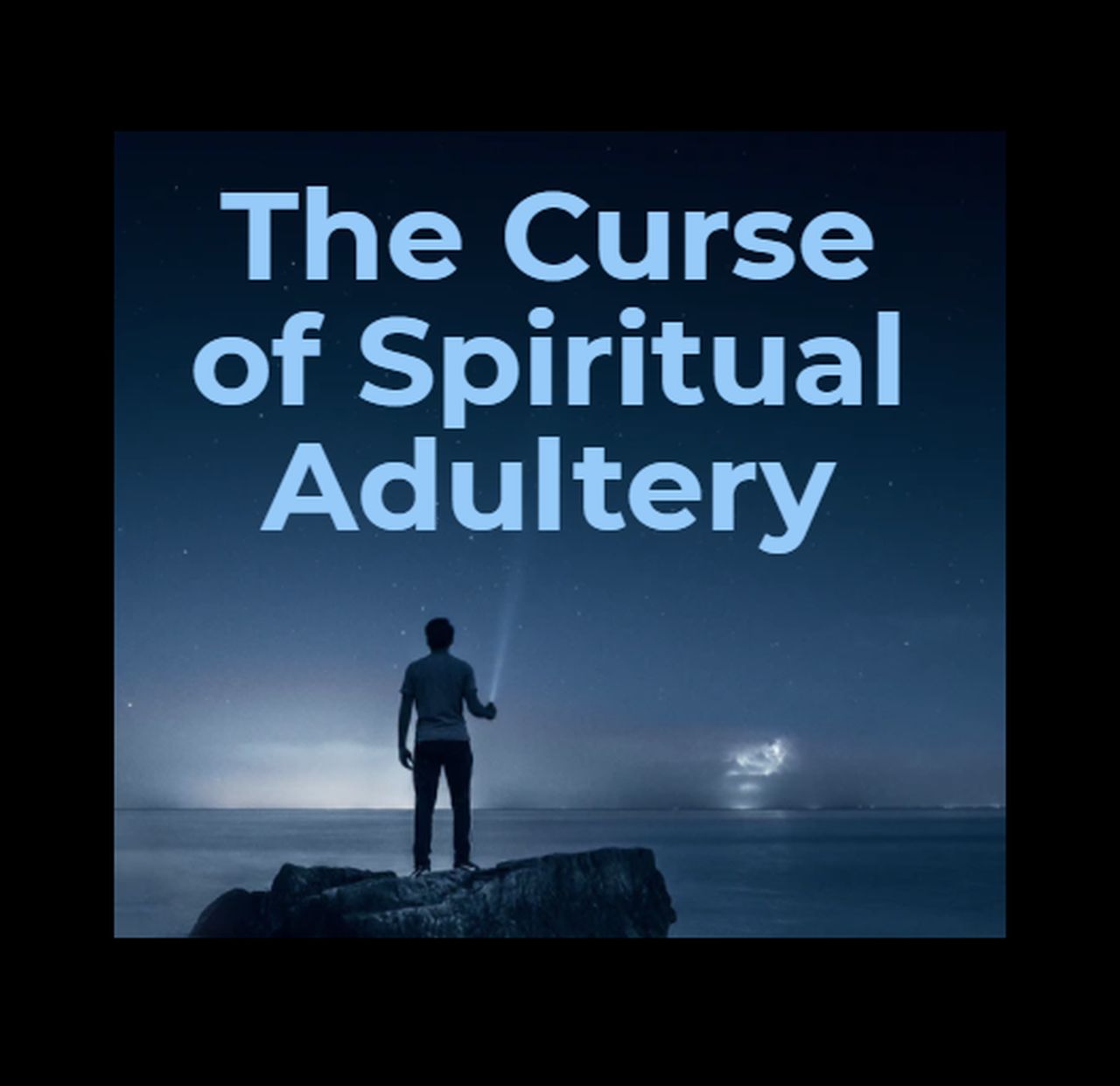
-

 America10 months ago
America10 months agoThe Drugging of America: The Pharmakeia Sorcery Deception [podcast]
-

 Articles2 years ago
Articles2 years agoChildren being Rescued in Tunnels: Happening Now – UPDATE!
-

 Articles8 years ago
Articles8 years agoSelf-Examination in Preparation for the Lord’s Return
-

 Apostasy2 years ago
Apostasy2 years agoSHOCKING List of False Prophets Most Believe are True















